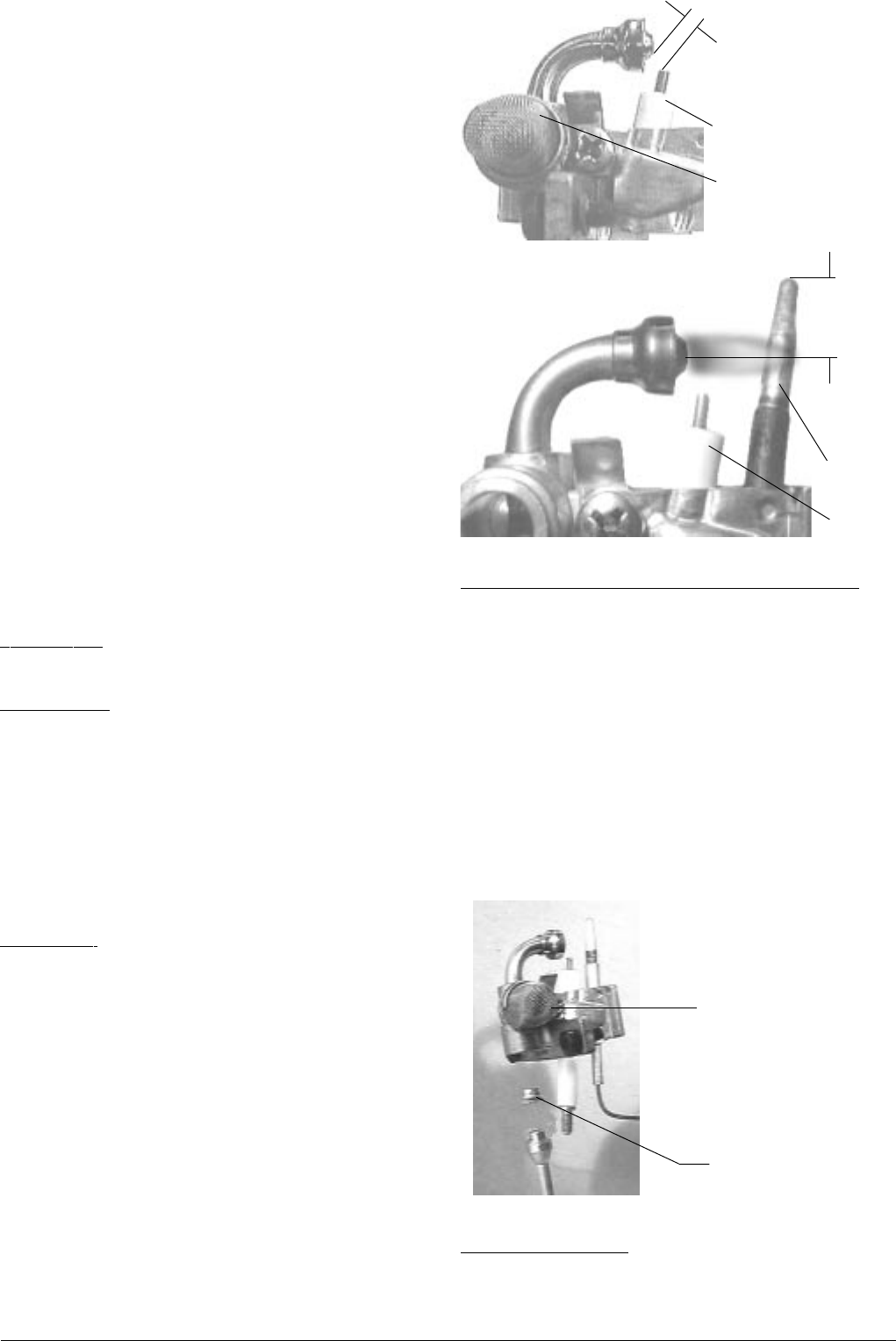
136 720 606 518
Fig. 8 - Characteristic Pilot Flame
3mm
Correct gap between pilot
burner tip and piezo electrode
tip
Piezo Electrode
Air screen filter
10mm
3/8”
Piezo
Electrode
Thermocouple
To clean the pilot burner and/ or the pilot orifice : Turn
off the gas at the unit. Remove the cover of the heater. To
do so, remove incandescent particle tray and unscrew the
central screw located at the bottom of the front cover. Pull
main cover out toward you and lift up and out. Pull the air
screen off, wash it and blow any lint off (See Fig 9). The
pilot orifices should also be cleaned or replaced. Do not
enlarge the orifice. Do not use any wire or sharp object to
clean orifices. Natural gas orifices are large enough that
you can usually clean them by blowing through them. LP
orifices, on the other hand, are too small to clean and should
be replaced. See #3 in Trouble Shooting Section. To access
the pilot orifice, remove 2 screws holding pilot assembly in
place. Then loosen compression fittings to expose pilot
orifice.
Fig. 9 - Pilot burner with air screen/ pilot orifice
PILOT ORIFICE
AIR SCREEN
INFORMATION ABOUT WATER TEMPERATURE
The AquaStar 125B LPS and 125B NGS water heaters
have a gas control that modulates burner output in response
to water flow. Its purpose is to ensure that the hot water
temperature will remain steady, although the water flow
demand might vary (down to 1/2 gal/minute). The AquaStar
125 B”S” will produce a temperature rise of approximately
90°F at flow rates between 0.5 and 1.8 gallons per minute
unless the water has been preheated. If the incoming water
is already hot, the burners will modulate accordingly so the
outlet temperature will not exceed 140°F.
Cold water will have to be mixed in at the faucet to produce
comfortable temperatures. Mixing in cold water will produce
higher flow rates and will reduce risk of scalding. Note: 105°
is the maximum recommended temperature for a hot bath.
Handwashing should not be done in water hotter than 112°
- and cooler for older adults, young children or persons with
sensory loss. Remember that scalding can occur in 20
seconds with 135° water.
MAINTENANCE AND SERVICE
(see maintenance table on back of manual)
Approximately once a year, the AquaStar should be checked
and cleaned. To remove the front cover, first remove the
incandescent particle tray, then unscrew the central screw
located at the bottom of the front cover. Pull main cover out
toward you and lift up and out. THE FOLLOWING
OPERATIONS SHOULD BE PERFORMED BY A
QUALIFIED SERVICE PERSON:
Vent System: Should be checked annually. Clean and repair
as needed.
Water Valve (Part # 8707002393): The water valve on
this heater should be serviced periodically. Lubricate
component #27 on page 14 with a small amount of silicon,
faucet or lithium grease every two years to keep its o rings
fresh and pushrod sliding smoothly. Every 3-5 years replace
components #27 and #29 on page 14. The frequency will
depend on the mineral content of the water and conditions
of use or whenever signs of corrosion appear at the gas and
water valve joint. Periodically check that the water inlet filter
(#34 on page 14) is clean as well.
Pilot Flame: The pilot flame should burn with a clean sharp
blue flame and should resemble the diagram in Fig 8. If the
flame is yellow, or if the pilot knob has to remain depressed
for a long time in order to keep the pilot lighted, the pilot
burner and or the pilot burner orifice may need to be cleaned
(NG), the orifice may need to be replaced(LP), and or the
air screen may need cleaning. The pilot flame should envelop
approximately 10 mm (3/8") of the tip of the thermocouple.
If it is too small, the pilot burner must be cleaned. To obtain
a spark, the position of the Piezo igniter electrode should be
approximately 3 mm (1/8") from the pilot burner tip.
Main Burner Flames: The main burner flames should be
blue, with a more intense blue cone in the center core. Yellow
flames could be a sign of wrong size gas orifices or dirty
burners, or a blockage on the heat exchangers fins.


















